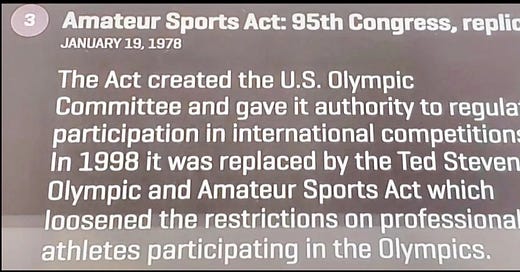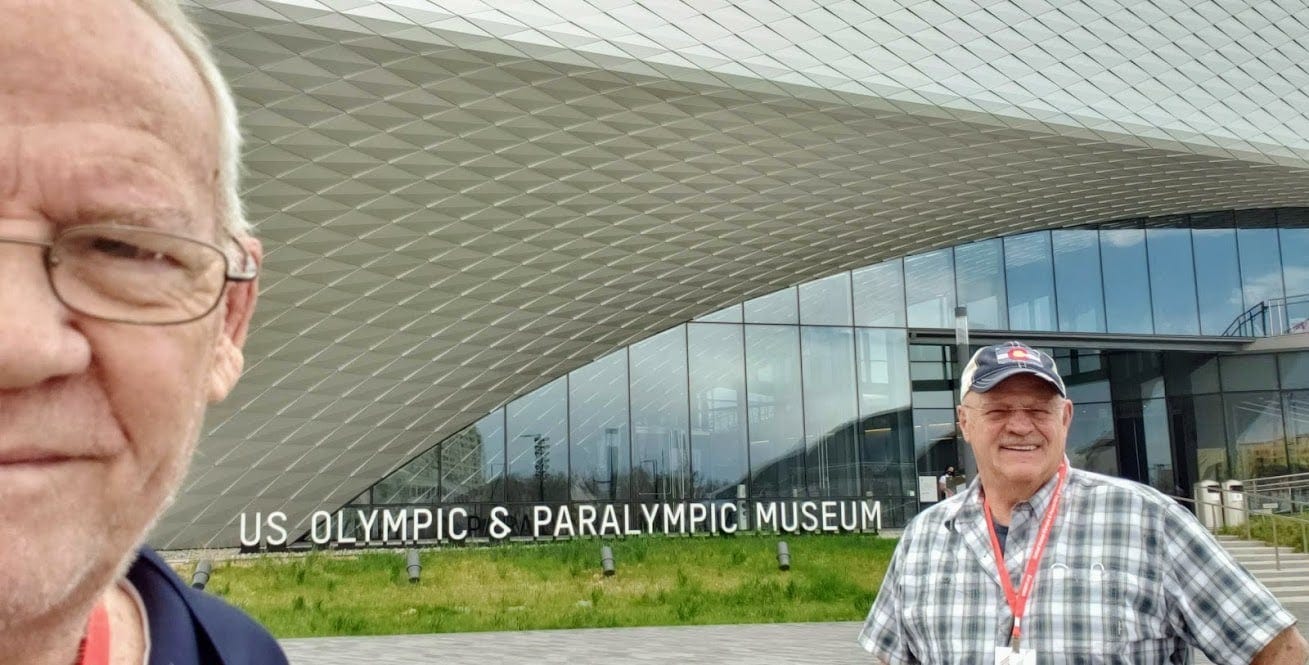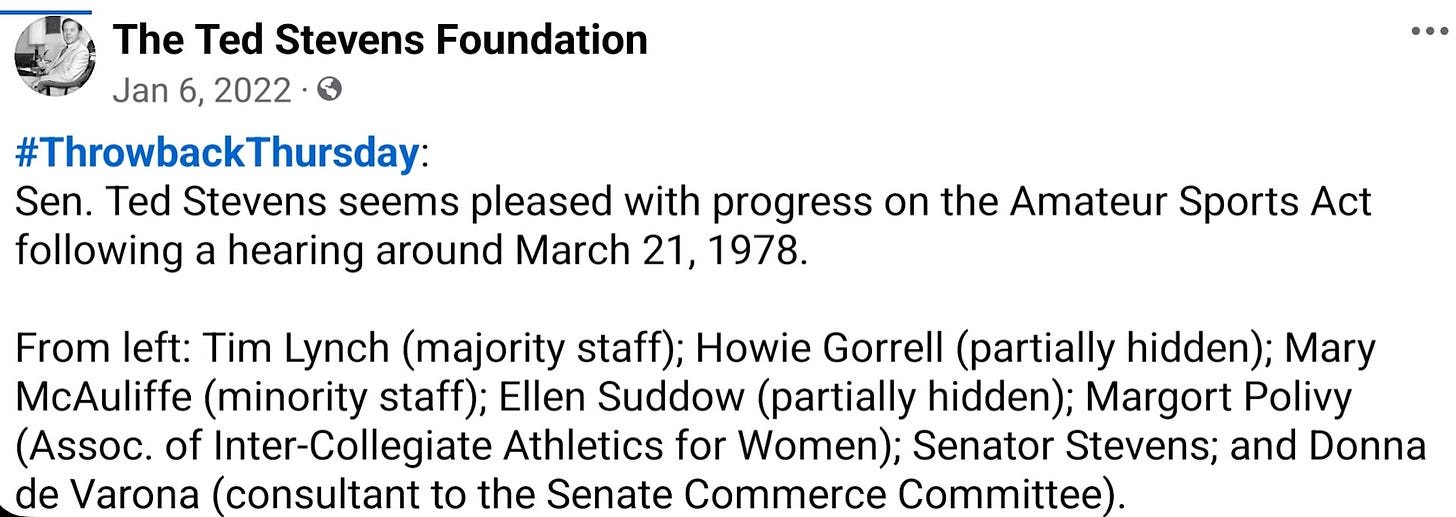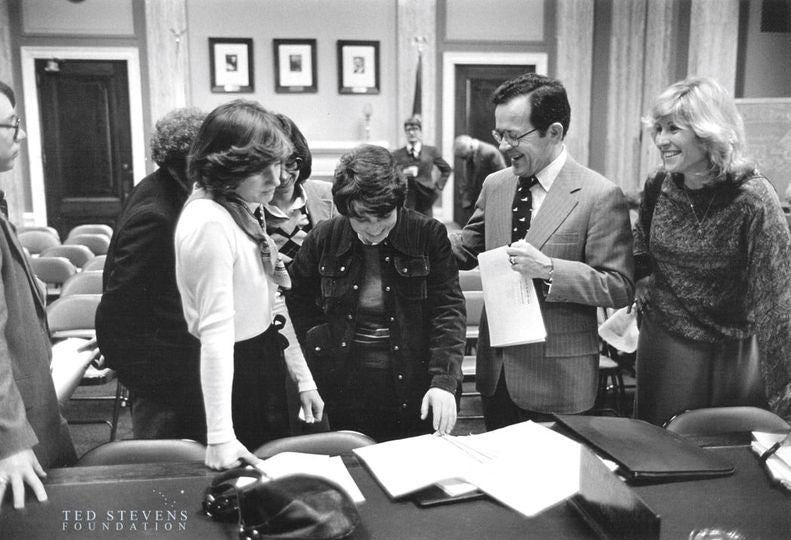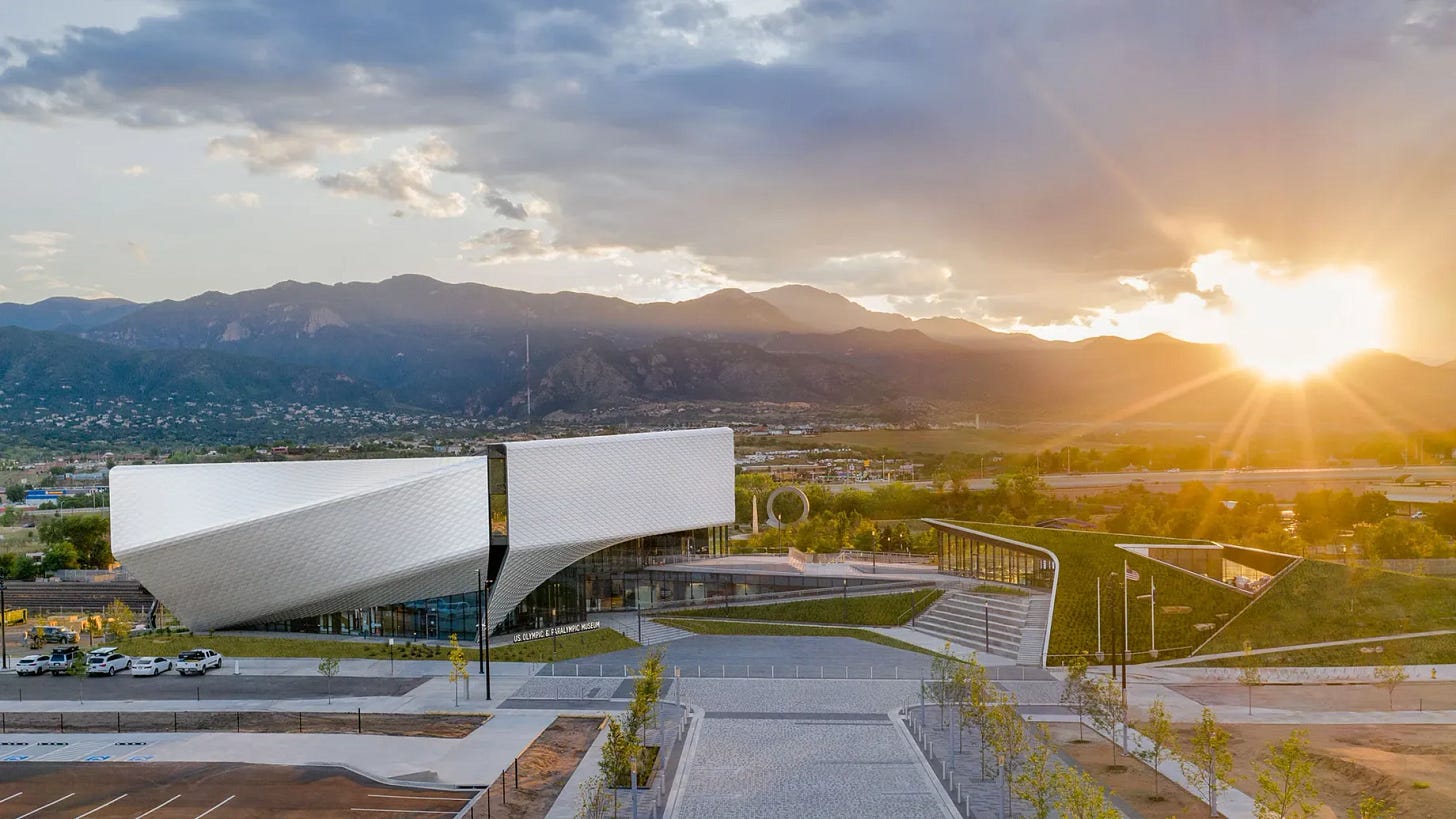Last Wednesday, the new Executive Editor of The Fulcrum decided not to publish my commentary below because it doesn’t align with its editorial focus. This doesn't bother me; the content below can still be shared within the Google network for public access. I've included more pictures for your enjoyment while reading.
Misunderstandings of the Amateur Sports Act of 1978
BIO: Deaflympian Howard Lee Gorrell was previously involved with the President's Commission on Olympic Sports and the legislative process of the Amateur Sports Act with U.S. Senator Ted Stevens of Alaska.
On the glorious day of May 15, 2021, my longtime Deaflympian friend, Walter von Feldt, and I were thrilled to visit the $92 million U.S. Olympic and Paralympic Museum (USOPM) in Colorado Springs, which opened on July 30, 2020, for the first time.
During a break from the U.S. Olympic & Paralympic Training Center as a Paralympic trainee, the museum guide was assigned to lead us while interpreting in American Sign Language. When we reached an artifact display case at the end of a jetty off the main space on the top floor, I was dumbfounded while reading a two-sentence blurb about the Amateur Sports Act of 1978. So, I took a picture of it.
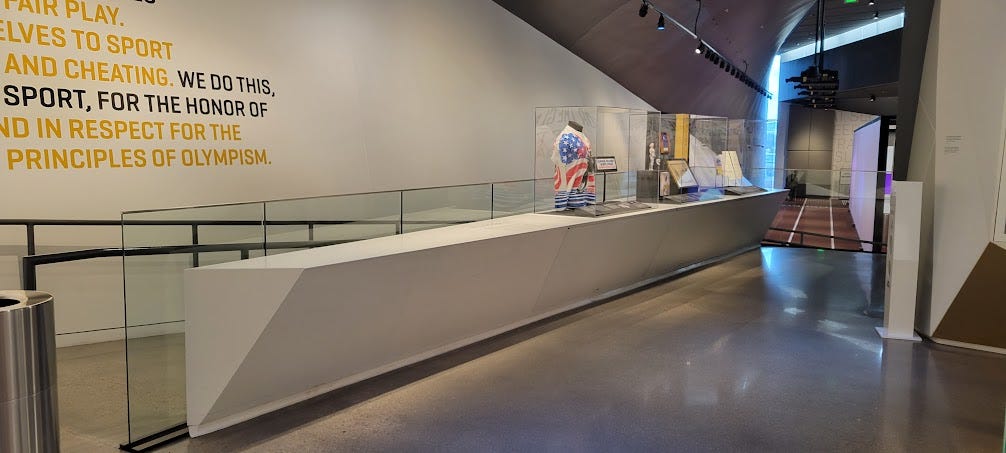
This picture (see the first picture above) led the Colorado Springs Gazette to run a long front-page Sunday article about the display errors on January 30, 2022.
Covering the Olympic news, The Sports Examiners Editor Rich Perelman read the Gazette article and wrote on January 31, 2022, “Let’s hope it is appropriately re-worded and soon. And congratulations to Gorrell for working so hard to right something that is wrong.”
CLAIM: The blurb (pictured) starts with the phrase, "The Act created the U.S. Olympic Committee [in 1978]." (Interestingly, this phrase has also appeared in several publications.)
FACT: The U.S. Olympic Committee was founded in 1894 under the authority of the International Olympic Committee. In 1950, Congress granted the United States Olympic Association (renamed the United States Olympic Committee in 1961) a federal charter. The Amateur Sports Act of 1978 updated the USOC's 1950 federal charter.
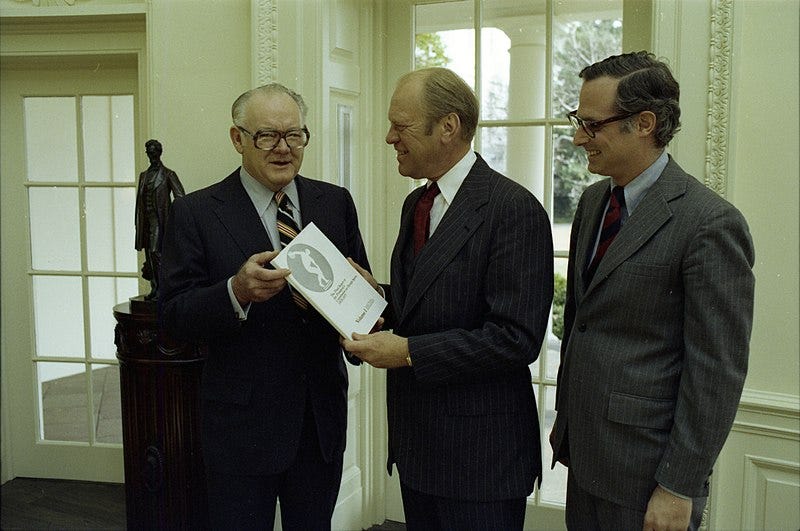
In 1975, President Gerald Ford established the President’s Commission on Olympic Sports (PCOS) to examine how sports should be organized in the United States to achieve Olympic and international success while maximizing sports development in America. Their 613-page report, divided into two volumes, served as the foundation for the Amateur Sports Act in 1978.
In 1998, this Act was amended—not replaced—by the Ted Stevens Olympic and Amateur Sports Act of 1998. To support athlete empowerment, Congress enacted three laws: the Protecting Young Victims from Sexual Abuse and Safe Sport Authorization Act of 2017, the Empowering Olympic, Paralympic, and Amateur Athletes Act of 2020, and the Equal Pay for Team USA Act of 2022.
Are there too many sports laws? In 2018, Michael “Mike” Harrigan, the former Executive Director of the President's Commission on Olympic Sports (1975-77), noted that the root causes of the issues were:
The USOC failed to properly oversee national governing bodies as the Amateur Sports Act (ASA) required.
The USOC failed to understand certain portions of the ASA.
The USOC failed to educate its members and Congress on its contents.
The USOC's "culture" had ignored everything in its legislative mandate except the goal of winning Olympic medals.
Five years later, on September 6, 2023, Ed Williams, a past Chair of the USOPC Athletes’ Advisory Council (1977-81), testified before the Commission of the State of U.S. Olympics and Paralympics (CSUSOP) and said, “The USOC leadership, both staff and the board, must engage in a program of self-education. Just ask Mike Harrigan about that. Many good things and lessons learned in the past have been lost and forgotten on account of the lack of any institutional memory within the USOC.”
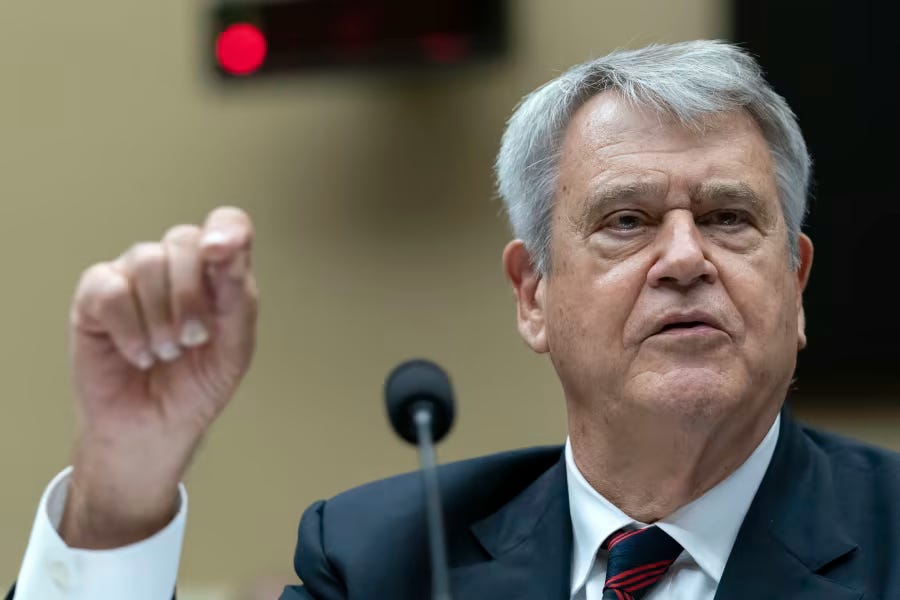
In our age of the early 80s, Harrigan, Williams, and I are only a handful of people who would have caught the errors because we lived it.
CLAIM: Another error happened when AP Reporter Ed Pells interviewed CSUSOP Co-Chair Dionne Koller in Colorado Springs on May 17, 2023. He wrote, "Koller views her group as the 2020s version of the President’s Commission on Olympic Sports, which was created by President Gerald Ford in the mid-70s and set the stage for the Stevens Act."
FACT: It didn’t merely set the stage. According to Harrigan, the PCOS recommended that the USOC provide for the following:
a. proper representation of athletes, sports organizations, and other constituents in the USOC and National Governing Bodies (NGB) (such as USA Swimming and USA Luge);
b. USOC authority to recognize, certify, or maintain/deny NGB acceptance based upon NGB fulfillment of criteria and duties as contained in the Amateur Sports Act;
c. mechanisms to resolve certain disputes involving athletes, coaches, officials participating, and other major NGB governance disputes that had escaped a formal resolution process for at least 50 years and frequently had crippled USOC and/or NGB operations.
I must conclude the commentary with one crucial point.
CLAIM: Last month, I read “Celebrity Patrons Fill Cracks in U.S. Olympics Funding” and was puzzled by what Reporter Eben Novy-Williams wrote: "At the time, a commission launched by President Gerald Ford suggested Congressionally-appropriated funding for Team USA, but the federal law [ASA] that was eventually passed left the USOPC as a quasi-governmental entity, on its own to generate its own funding."
FACT: The USOPC is not known as a “quasi-governmental” entity. It is just a federally chartered private nonprofit corporation listed in Title 36 of the United States Code.
The PCOS recommended several funding options for Olympic sports. They were:
direct appropriations for facilities and other sport development purposes;
use of federal funds designed primarily for another purpose but which also can have a positive effect on sport development;
federally created government sanctions of programs that authorize opportunities for citizens to support financial sports development such as coins, tax refund checkoffs, lotteries (in states that have them), and others;
private sector programs to include sponsorship and charitable donations.
So that Congress could choose those who could be the priority.
Since the enactment of the ASA, there have been the following significant developments:
Congress has authorized commemorative coins to honor the Olympic Games and participating athletes and to provide surcharge payments to designated Olympic organizations to help financially support the Olympic Games.
When the United States hosts the Olympic Games, Congress must direct federal funds to transportation, housing, and other needs in and around the host cities.
In 1978, Congress authorized a one-time federal grant of $16 million to the USOC to develop further and improve its programs and control over amateur sports.
Since the late 1980s, USOC has received a substantial share of U.S. television rights for the Olympic Games.
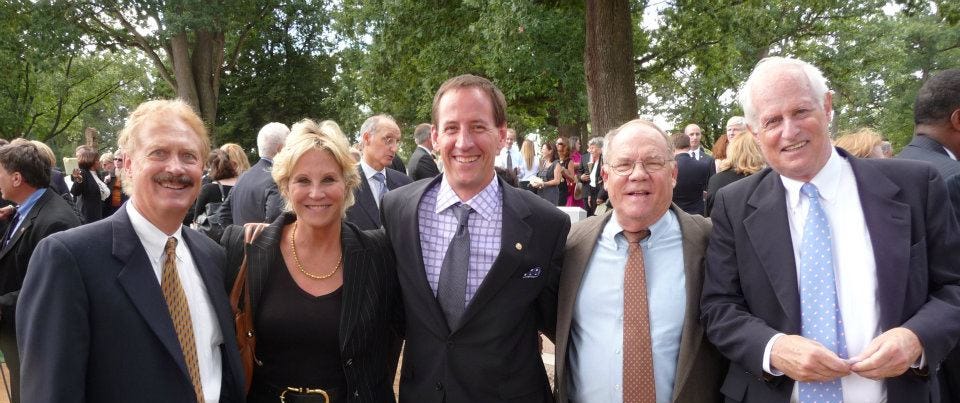
As one of five people serving on the USOPM's Ted Stevens Olympic and Amateur Sports Act working group alongside Harrigan, Gary Johansen, and Donna de Varona to correct these errors, I have been informed that the new Museum leadership under CEO Marisa Wigglesworth, along with the specific efforts of Barb Reichert, have significantly advanced a corrected display. I look forward to seeing them on my next trip to Colorado.

